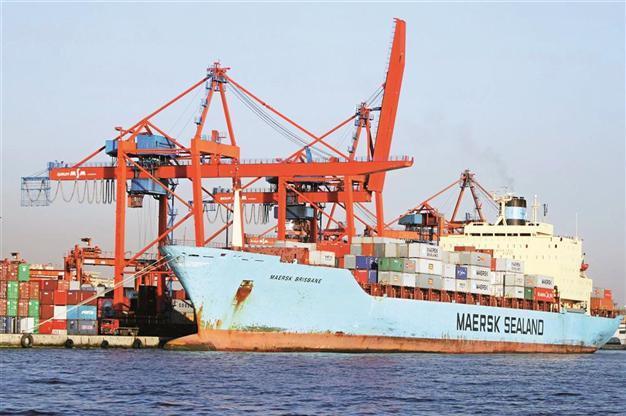Exports, imports of Germany plummet
BERLIN - Reuters

Germany’s exports and imports slumped unexpectedly in February. Hürriyet photo
German imports fell sharply in February for the third time in the last four months and exports also declined, in a sign the euro zone’s largest economy cannot be relied on to help lift the currency bloc out of recession.
Data from the Federal Statistics Office showed yesterday that imports sliding 3.8 percent as the consensus forecast had been for imports to rise 0.5 percent. Exports, which had been expected to remain unchanged, dropped 1.5 percent, underscoring how weakness in Germany’s key European partners is affecting demand for its goods. Exports have fallen in three of the last six months.
“The hope was that German domestic demand would support theeconomy, not just its own but also that of the rest of the euro zone, and especially crisis countries, via imports,” said Christian Schulz at Berenberg Bank.
“But the German economy is not yet playing the role that it could play in terms of European rebalancing,” said Schulz. “Domestic demand still seems to suffer from lack of confidence due to certain uncertainties surrounding the euro crisis.”
The seasonally-adjusted trade surplus widened to 17.1 billion euros from 15.6 billion in January. The consensus forecast was for it to narrow to 15 billion euros.
Germany’s economy, long resilient to the euro zone crisis, slowed in 2012 and output shrank by 0.6 percent in the final quarter. But economists expect it to skirt recession and to have returned to weak growth in the first three months of 2013.
Goverment expects 0.4 percent growthThe government is predicting an expansion of 0.4 percent this year. German growth is crucial for stimulating the economy of the broader single currency bloc, struggling with a debt crisis and mired in recession.
Domestic demand is still expected to drive growth this year, helped by a strong labor market, solid wage hikes and favorable financing conditions. Economists said they hoped February’s gloomy imports figure was a one-off, and argued it was balanced out by the strong rise in January.
Exports, traditionally the main driver of German growth, are not expected to bolster German gross domestic product (GDP) this year due to austerity measures and recession in the euro zone, where Germany sends 40 percent of shipments.
